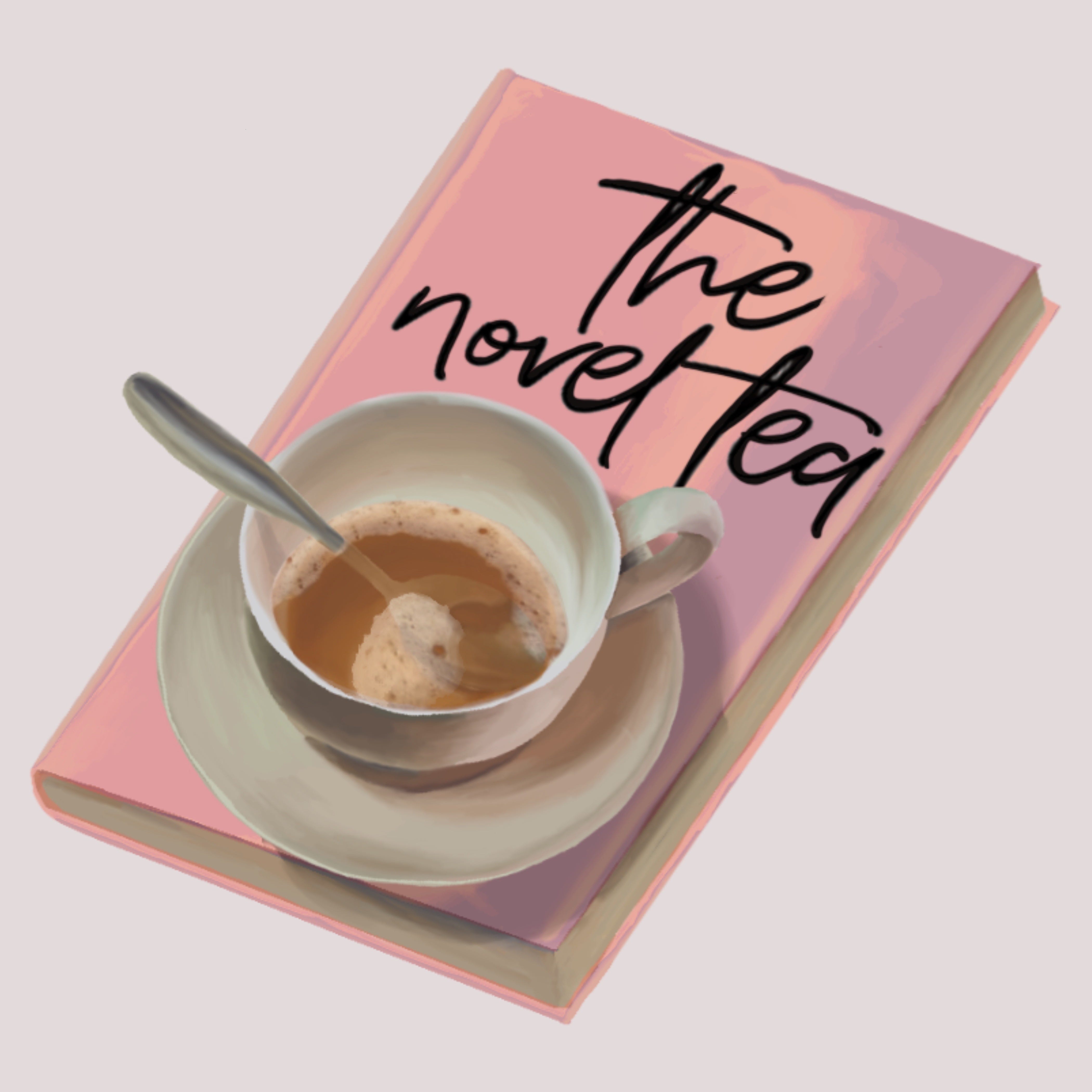Exploring Life and Literature
Dear Friends,
Our guest today was born and raised in a suburb of Seattle, Washington, and moved to Hyderabad, India with her family when she was eleven. After attending college in California, she moved to New York for medical school and has lived in Brooklyn for the past six years where she spends the majority of her time as a general surgery resident physician.
Shruti Koti’s love of learning, both through the humanities and the sciences, led to an exploration of the intersections of these fields in her career and the world. When not working, she spends much of her time on her book discussion podcast, The Novel Tea, which she hosts along with Neha Ambati, where they read one book at a time, thinking through themes, plots, and characters as they attempt to discover the modern classics. She also enjoys exploring New York City, particularly its many museums, parks, and restaurants when she is not reading, talking, or writing about books.
An avid reader throughout her life, Shruti has a special place in her heart for canonical classics like Austen, Wharton, and the Brontes. Recently, she has incorporated a wide variety of novels into her reading. Though literary fiction and gothic are her favorite "genres," Shruti says she will read just about anything, enjoying recent forays into speculative fiction and non-fiction. One novel that influenced her is The Twentieth Wife by Indu Sundaresan. This novel is the story of Mehrunnisa, who grows up to become Nur Jahan, one of the most powerful empresses in Indian history. The book follows her coming-of-age, her marriage and love story with Salim (the emperor Jahangir), and her accumulation of power. This book inspired Shruti’s love of history.
I asked Shruti if there were a book she would like to recommend and her selection is Passing by Nella Larsen. This book is, in some ways, a "rediscovered" classic that many had not heard of until recently. It follows two Black women in New York during the 1920s, one of whom 'passes' as white. It explores themes of female friendship, identity, choice and agency, race, gender politics, and so much more. Shruti says that despite being a slim volume, this book is so expansive and the tension is written impeccably.
Enjoy this guest essay from Shruti.
Often, in my life, I have had moments when I have wondered about fate. I don't believe that being born under a certain star, or coming into this world at a specific time determined my life for me. And yet – there are certain choices I have made over the past thirty years that have set me down a particular path.
When I was 13 years old, what I wanted more than anything was to live in New York City. This was in the days before Gossip Girl, so I'm not exactly sure where this fantasy came from – it very likely had to do with the old novels I read and the Nora Ephron films I consumed. Now, many years later, I do live in New York, leading a wonderful life that 13-year-old me would have been thrilled to hear about.
But was it up to me? Was it fate that brought me here? Was it that pull of destiny I felt at 13 that brought me here, or did it happen because of a choice I made, with free will?
This was just one of the many decisions in my life that I wonder about. I am fascinated by these questions of fate, destiny, free will, and choice, and how we can make sense of it all.
So is Eleanor Catton.
Eleanor Catton was born in Canada, in 1985. When she was six years old, her family returned to New Zealand, where she then spent the rest of her childhood in Christchurch. Her mother was a children’s librarian, and her father, a philosopher.
Her first novel, The Rehearsal, was published in 2008 when she was just 22 years old. It originated as a Master’s thesis and, frankly, I can see that in the writing. The story follows a myriad of characters in the aftermath of an affair between music teacher Mr. Saladin and one of his female students. We learn not only about the characters at the girl’s high school, and those taking music lessons, but we also spend time at the Drama Institute, where this very scandal has been co-opted by the students for a theater production.
I came to this novel last, after reading her two other books, with the goal of becoming an Eleanor Catton completionist. And while it wasn’t as well-crafted as the other two, reading The Rehearsal helped me understand how she first came to the theme of destiny that she seems to love.
In The Rehearsal, a deck of cards serves as the main prop for the play that the students put on – and it is also a device that dictates the book’s structure. Sections of the novel are brief and ordered randomly, skipping around in space and time, shifting from character to character: like a shuffled deck of cards.
In one scene at the school, a girl named Julia describes the scandal as follows:
“It’s like gambling,” Julia says, even louder. “If you are going to make a bet that you’re almost positively certain you’re going to win, it’s not going to cost you much adrenaline. But if you make a bet where all the odds are against you and there’s just a tiny, tiny glimmer of a chance that you might make it, then you’re going to be pumping. There’s a higher possibility that you might lose. It’s the possibility that you might lose that gets you excited.”
It's the possibility that you might lose that gets you excited.
That tension, that uncertainty, the sneaking suspicion that you might lose, is a feeling that fuels this novel, and many of Catton’s works. What is a gamble? Is it a choice made by a person with free will? Or is it simply a way of revealing one’s fate?
Catton’s second novel, The Luminaries, was the longest book to win the Booker prize. It follows a cast of characters in New Zealand during the gold rush in the 19th century, whose lives all intersect around a crime that has been committed. In the beginning, we don’t know anything about the crime, its implications, or how it will connect to these characters. But as the book progresses, we travel around the key incident, round and round in circles, and slowly, things are revealed to us.
The Luminaries is founded on the theme of astrology. When planning the novel, Catton discovered there had been a triple conjunction in Sagittarius at the time the novel was set. She noticed that certain planets were following others, and she realized that she might use this as a device for her story. She then looked into star charts, researching space programs to reconstruct the night sky at the time the novel takes place.
Each character in her novel is linked to a zodiac sign, and their profession often relates to that particular zodiac (eg, Charlie Frost is a banker – his sign is Taurus, which has traditionally been associated with monetary affairs). Chapters are labeled by planets, clueing us in to planetary influences, in addition to zodiac representations.
Yet despite all these careful astrology references and allusions, the reader of this book cannot predict where this book is going to go. For some readers, that is exciting – for me, it called into question Catton’s own beliefs about destiny and fate.
At the end of the book, when all the answers are revealed, it is still fairly unclear how the planetary influences and astrology references led to the ending. And while I didn’t love this book, I don’t necessarily think that is a bad thing. I think it shows Catton’s humility (which very few authors admit to on the page): she tells us, through her narrative, that she doesn’t know the answers to some questions. She is simply exploring them to the extent that she can – and perhaps, we will learn something along the way.
In one interview, Catton was once asked about her fascination with the zodiac. She said:
"I like to think of the zodiac as having a lot in common with the Greek pantheon: less of a thing to be believed in, and more of a repository of cultural knowledge and history that is archetypal, and mythic, and responsive to close study."
-- Eleanor Catton, Interview for The Age
Indeed, the ancient Greeks were obsessed with the idea of fate, and they explored this theme by delineating the differences between gods and humans. In the Greek tragedy, humans were not agents of their own free will; they were subject to the will of the gods – and so their destiny was prewritten. The most famous example of this might be Oedipus Rex: the tortured king, despite knowing the prophecy that spells out his own tragic destiny, cannot change what happens.
In Birnam Wood, Eleanor Catton’s most recent novel, these questions of fate and destiny are at their most prominent.
Birnam Wood can be divided into two halves, each greatly differing from the other in pace and plotting. But both parts are necessary – in the first half, the characters have multiple conversations about their complicity in climate change, their own politics, government policies, and how they, as individuals can make a mark. What they don’t realize is that every action, every choice they make, however small, has a consequence. They just can’t predict what those consequences are – and we, as readers, don’t realize the magnanimity of those consequences until the second half of the book.
In this part of the book, Eleanor Catton also pays homage to some of the authors who have shaped her as a writer. In this interview, she describes her love for the 19th century English novel, in particular Middlemarch and Emma, and how they have influenced her writing. Hearing her talk about these classic novels that I love made me appreciate her work so much more.
Catton is very aware of the literary and artistic traditions that she is writing in. Birnam Wood, like The Rehearsal, is linked to the theater in its inspiration: the title, Birnam Wood, is taken from MacBeth. Catton crafted the book such that each character was, in their own way, a kind of MacBeth, and they each had someone playing the role of Lady MacBeth, and the three witches for them. In other words, the characters exist in a web, and every person is influenced by another to make the wrong choice (Lady MacBeth), and they also have someone who might predict their downfall (the three witches).
As we speed towards the ending (vague spoilers in this paragraph), we reach a dramatic, mind-boggling ending that mirrors the endings of Greek tragedies. Not only has everyone fallen, at the hands of their own hubris and limitations, but there is the suggestion of a divine presence: one character nearly prays to a higher power to intervene. And in this tragedy, we the readers realize that the characters’ epiphanies came far too late – is it possible that they could have prevented the ending by only looking inwards a bit earlier?
Eleanor Catton has become a favorite author of mine. Each of her works is so unique in tone, structure, plot, and setting, that it is hard to imagine they all came from the same author – a testament to Catton’s skill. Not only is she a brilliant writer with incredible range, but she also has a deep respect for our collective literary heritage, and she plays with these traditions and stories to move literature forward.
Beyond the Bookshelf is a reader-supported publication. If you are looking for ways to support Beyond the Bookshelf, please visit my support page and see how you can help continue the mission of exploring the connection between life and literature.
Until next time,












Thanks for this - what an insightful way of looking at her novels. I've had The Luminaries on my to read pile for aaaages and you've inspired me to dust it off and get started!
Great guest post. The question of destiny is put under the microscope. Shruti examines the question by considering eastern and a western perspectives both involving close observation. Thanks for this. It is worthy of a lot of thought and consideration especially in these times.